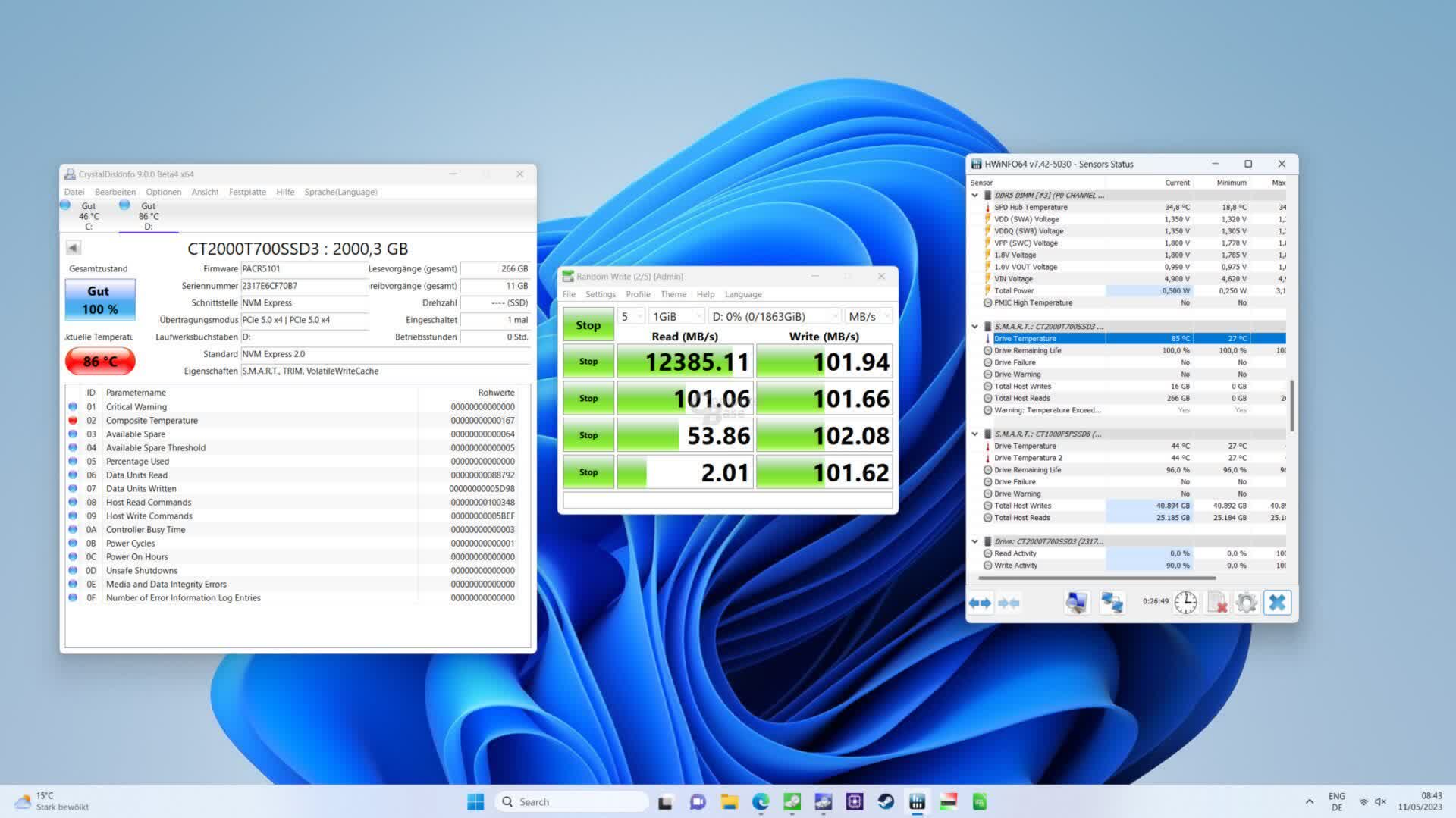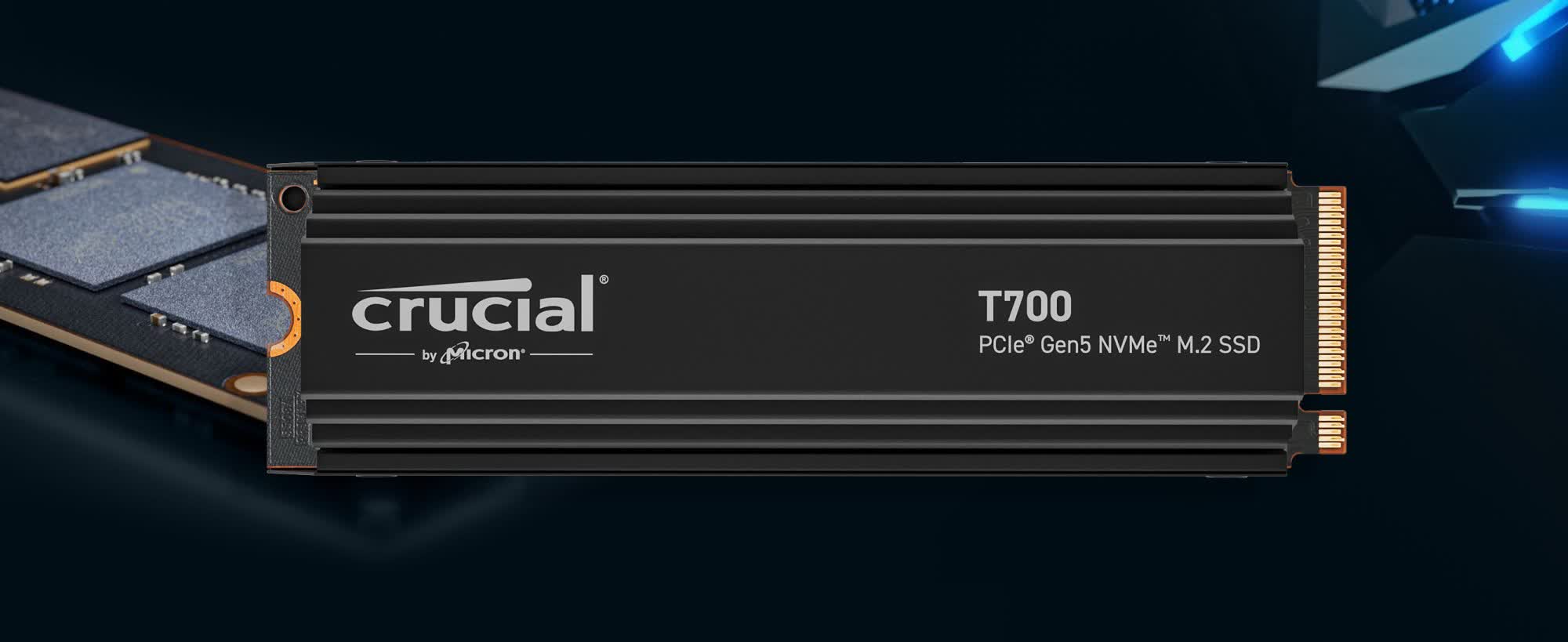TechSpot is celebrating its 25th anniversary. TechSpot means tech analysis and advice you can trust.
A hot potato: With the rise of blazing fast NVMe SSDs, storage has become another PC component that needs dedicated cooling. Recent tests of two new PCIe 5.0 models show precisely why: they reach temperatures typically seen in CPUs and GPUs, which can stop the drives from working as they should.
ComputerBase’s recent tests of Crucial’s T700 and Corsair’s MP700 NVMe SSDs could further convince consumers that they should strongly consider paying extra for the heatsinks retailers offer with new drives. Their impressive read speeds, normally sitting in the neighborhood of 10GBps, completely evaporate if the SSDs get too hot.
Both drives can reach temperatures in the 80 Celsius range without cooling but handle those extreme conditions differently. The outlet’s review of the Corsair SSD reveals that, without a heatsink, it can idle at 67 C. A CrystalDiskMark test pushes it up to 87 C, at which point it crashes.
The T700, meanwhile, continues operating upon reaching similar temperatures but throttles to speeds resembling HDDs. In the screenshot below, Crucial’s 2TB drive initially reads at an incredible 12.3GBps but quickly plummets to 101MBps and then 53MBps as the temperature reaches 86 C. It’s preferable to crashing and risking data loss, but the extra speed that defines NVMes seems to completely disappear under load without dedicated cooling.

Click to enlarge
As the first wave of PCIe 5.0 SSDs hit the market, Gigabyte’s Aorus Gen5 is another stark example of the thermal obstacles they run into. Its 10GBps sequential read speed generates enough heat to justify a cooler that dwarfs the drive.
Most users affected by the current situation are likely enthusiasts, rendering professionals, and early adopters. Only the most recent motherboards support PCIe 5.0, and not all applications fully utilize PCIe 5.0 SSD transfer speeds.
For many users, PCIe 4.0 drives could remain the standard for a while. Their read speeds typically range between a still-impressive 4GBps to 7GBps, which PC games haven’t yet fully tapped. Moreover, prices for these mature SSDs are steadily declining due to the recent 3D NAND oversupply. They’ve fallen by over 30 percent since the start of 2023 and could continue dropping for much of the rest of the year.
The Crucial T700 ships on May 30. Customers who pre-order the drive on Crucial’s website will receive a free copy of Company of Heroes 3.










